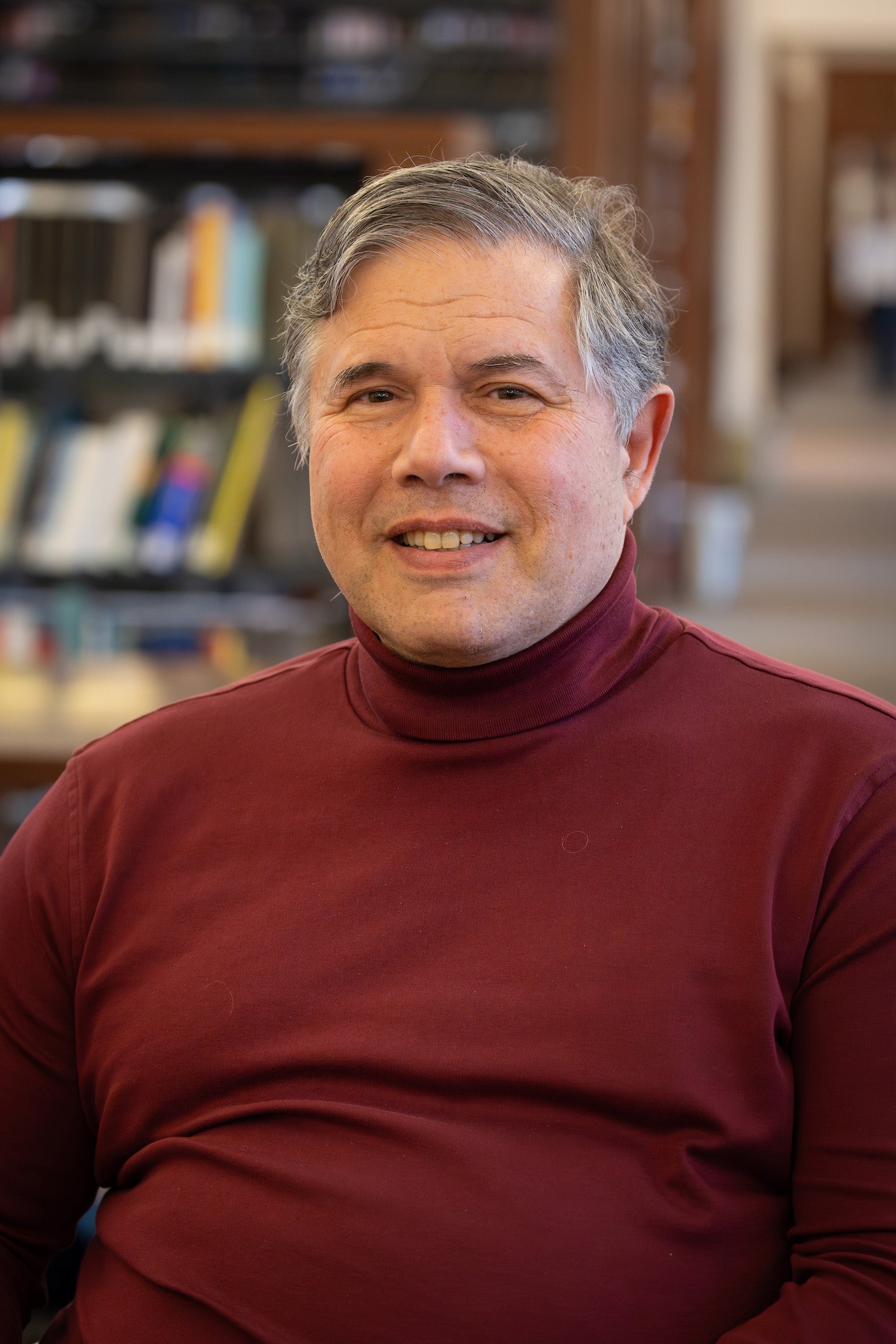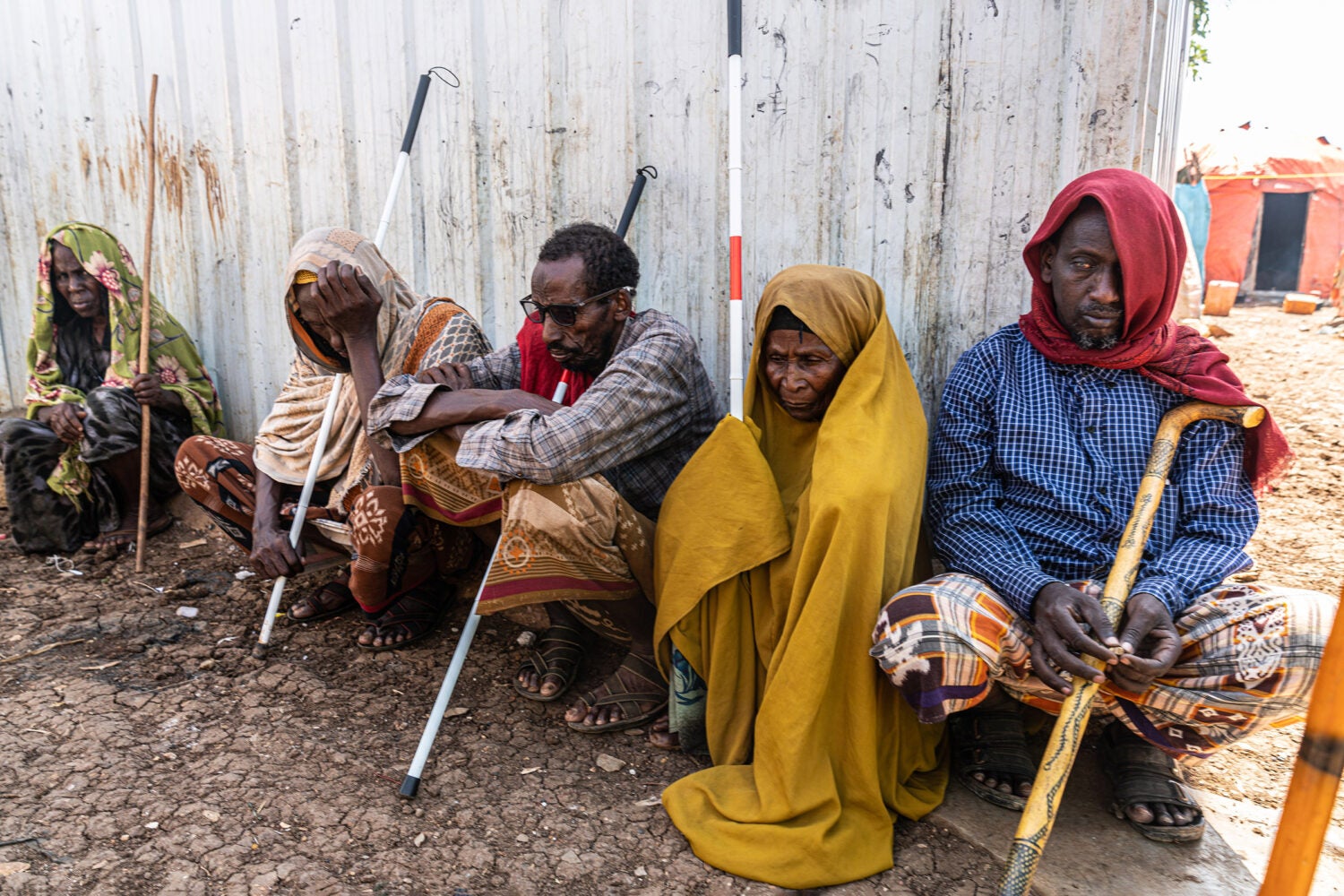People with disabilities must be included in climate planning, policies, and responses and approaches to loss and damage says a new paper by the Harvard Law School Project on Disability.
The Personal View, published in Lancet Planetary Health, urges researchers and policymakers to better understand the needs of the large and diverse global disability population. People with disabilities are disparately affected by climate change, with a mortality rate in natural disasters of two to four times higher than people without disabilities. Nevertheless, people with disabilities are systemically neglected in climate negotiations, national climate commitments, and policies. The need for disability-inclusive climate action has never been more urgent with 2023 the warmest year on record according to the World Meteorological Organization (WMO).
Extreme weather events such as hurricanes, wildfires, flooding, and severe drought are increasingly severe, more frequent, and impact all continents. Climate change is threatening the rights of over a billion persons with disabilities to life, health, food, water, personal mobility, and cultural life. However, the majority of States Parties to the Paris Agreement do not refer to persons with disabilities in their Nationally Determined Contributions or climate adaptation policies. “States that exclude persons with disabilities from climate adaptation and mitigation are not fulfilling their obligations under the UN Convention on the Rights of Persons with Disabilities as well as other international instruments,” says Michael Ashley Stein ’88, a visiting professor of law at Harvard.
In a new Personal View, Stein, along with Penelope J.S. Stein, a senior associate at the Harvard Law School Project on Disability, and members of the Global Disability Climate Justice working group urge scientists and policymakers to include people with disabilities in planning for and adapting to climate-related issues, from the local to the international levels. Their paper, published on April 3 in the leading journal Lancet Planetary Health, offers guidance on accelerating disability-inclusive climate action and a includes a call to action for researchers to explore disability-inclusive climate solutions that meaningfully center on the experiences and knowledge of people with disabilities.
In an interview with Harvard Law Today, Michael Ashley Stein shared how climate mitigation and adaptation policies and responses have often failed people with disabilities and what a new vision for disability-inclusive climate action might look like.

Harvard Law Today: I understand that the idea for this paper came out of a workshop that the Harvard Law School Project on Disability held. Can you tell me more about that?
Michael Stein: The Weatherhead Center for International Affairs and University College London’s Grand Challenges in Global Health Initiative generously funded a workshop with 30 global experts in response to the lack of inclusion of people with disabilities in climate action and research. This was a wonderfully diverse workshop convening academic experts who work on climate change, planetary health, sustainable development, public health, environmental justice, humanitarian assistance, gender, mental health, law, and disability. The workshop included leaders of organizations of persons with disabilities, practitioners and researchers with disabilities, representatives from low-income and middle-income countries, small island states, and Indigenous people with disabilities.
The paper lays out international recommendations including recognition of a UN Framework Convention on Climate Change disability constituency, provides pivotal recommendations on what governments should be doing moving forward, and sets forth a blueprint of research priorities that we hope will excite people who work on climate change but haven’t considered the connection with disability. We encourage researchers and practitioners to pursue these ideas led by and in conjunction with people with disabilities and their representative organizations, and provide guiding principles for climate research and action.
HLT: Why does the Harvard Law School Project on Disability have Disability Climate Justice as an area of focus?
Stein: Climate change, humanity’s greatest challenge, especially affects marginalized groups including people with disabilities. The unequal impact of climate change on persons with disabilities arises from ableism and discrimination. Persons with disabilities who are by and large excluded from the socioeconomic benefits of colonialism and capitalism, are greatly impacted by climate harms. Moreover, intersectional discrimination causes minoritized persons to be unequally affected by climate change. However, climate negotiations, national climate commitments, and both global and domestic-level responses, fail to adequately address structural discrimination through concrete disability-specific measures.
The disability climate justice framework which comprises the broad disability community including individuals with physical, intellectual, and mental disabilities, recognizes that experiences of climate harm are affected by multiple identity discrimination based on race, gender, age, and other categories.
Nowadays climate policies, if referencing persons with disabilities at all, do so by including them as a vulnerable group, which falls far short of the fulfillment of human rights, as demanded by the international disability movement. States have an opportunity to adopt climate plans and policies that incorporate specific disability rights-based measures when updating these instruments.
In 2023 the average global temperature was 1.45 ± 0.12 °C above pre-industrial levels as reported by the WMO, highlighting the need for rapid climate action to limit the long-term global temperature increase to below 1.5 °C. It is extraordinarily unwise to exclude the world’s largest minority from climate responses when climate action is so urgently required.
The Harvard Law School Project on Disability, for 20 years in over 40 countries, has worked to empower people with disabilities to advocate for themselves, to include people with disabilities in policymaking, and to have their voices heard.
HLT: How are people with disabilities disproportionately impacted by climate change?
Stein: Discrimination, institutional, and socioeconomic barriers heighten the adverse impact of climate change on people with disabilities, affecting their health, water, food security, and livelihood. A 2022 analysis of Australian heatwave fatalities between 2001-2018 found that 89% of fatalities had one or multiple disabilities, highlighting the existential importance of heat-related research and responses.
People with disabilities are disproportionately affected in climate emergencies due to a lack of, for instance, access to evacuation shelters, transportation, healthcare, and medical equipment. In 2017, Hurricane Maria struck Puerto Rico, causing significant loss of life, displacing thousands, knocking out power, and resulting in an estimated $90 billion in damages. Around one third of reported deaths were attributed to delayed and interrupted medical care, according to Harvard T.H. Chan School of Public Health researchers. That failure was perhaps felt most acutely by people with disabilities, who comprise about one in three of Puerto Rico’s adult population, and who were left without lifesaving medicines or access to electricity for medical needs among other harms.
Identity characteristics, including race, gender, and age can also heighten climate harms experienced by persons with disabilities. However, analysis of the climate impacts felt by people with disabilities is presently inhibited by the exclusion of disability from climate research and policymaking, and consequently data, and climate responses.
HLT: Your paper often touches on the intersectional nature of disability. For example, how other identities, such as race, gender, or class, can interact with disability and create further injustice. Why?
Stein: An intersectional approach is critical to understand and develop responses to climate impacts heightened by intersecting forms of oppression. This means not looking at harms as occurring in parallel silos but seeing how multiple identities interact and compound climate impacts. Intersectionality should alert us to the importance of working together as a broad climate justice movement aligned with the LGBTQ+ and racial justice movement. Climate change is a “wicked problem”. Accordingly, climate responses and research require collaboration and solidarity.
HLT: What key priorities do you identify in the paper?
Stein: Procedurally, persons with disabilities and their organizations must be enabled to share their knowledge and experience by meaningfully participating in climate negotiations, policymaking, responses, and research. People with disabilities are problem solvers because we must adjust our daily existence to navigate a world that has not been designed with us in mind. They have knowledge of the experience of disability and the challenge of adapting to climate change. A key takeaway is the importance of recognizing and acknowledging this capacity, so that persons with disabilities and their representative organizations can share disability knowledge, including Indigenous knowledge, because people understand their own lives better than others.
Consequently, inclusive climate response priorities must be identified by and with organizations of persons with disabilities. Imperatively, we are concerned with making sure that climate policies and responses do not violate disability-related human rights.
Research is urgently required into existential threats that unequally impact persons with disabilities via transformative mixed method research, including access to clean water, sanitation, and hygiene. An intersectional approach is vital to developing equitable climate responses. For example, women with disabilities face hot weather which impacts maternal health; water, sanitation, and hygiene insecurity; barriers to menstrual hygiene management; food insecurity; and gender-based violence.
HLT: What do you hope results from this effort?
Stein: We hope that advocates and researchers with and without disabilities will focus on disability-inclusive climate action and research as allies. Inclusive climate-resilient development benefits the diverse global population, including people with disabilities.
